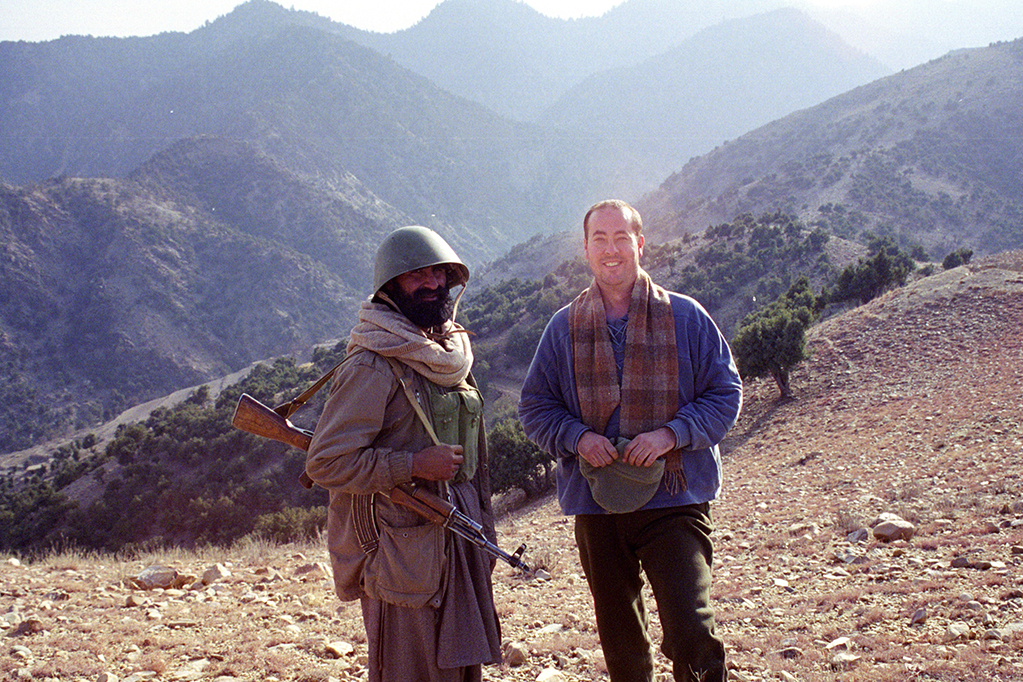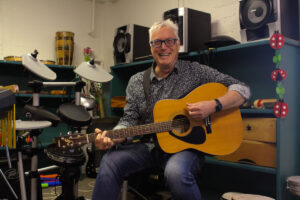War reporter’s lonely road
NZ journalist Jon Stephenson has covered conflicts around the world, including breaking the story about the role of the SAS in Afghanistan. Marnie Hallahan reports.
At the moment the first plane hit the twin towers at 12.46am New Zealand time on September 11, 2001, Jon Stephenson was returning home from visiting his father who was dying of cancer.
While most slept, blissfully unaware, hours away from catching the non-stop replays on the morning news, Stephenson stayed awake all night watching the live images on BBC, riveted.

A journalist, new to the trade, he knew that following this so called “act of terror” there would inevitably be a war in Afghanistan, and he wanted to cover it.
“It was a decision that I made very quickly. It wasn’t rocket science to realize that what had happened was extremely significant,” he said.
Soon after, Stephenson received an Asia Pacific Media grant which covered his airfare to Pakistan and with $300 in his pocket he crossed the border into Afghanistan amidst the bombing and fighting.
Ten years later, Afghanistan is still on his mind.
In May this year, Stephenson, who will be in Hamilton this week as a guest speaker at Wintec’s Spark festival, published an article in Metro magazine which details the involvement of New Zealand SAS soldiers in the detention of prisoners in Afghanistan who were then subjected to torture after being handed over to American and Afghani troops.
In his painstakingly researched 8000 word article he recounts evidence from the victims of torture themselves, from SAS soldiers and from Afghani officials.
He also says that the New Zealand government had knowledge of this involvement and has been complicit in its cover-up.
[pullquote]“The greatest damage, to me, is the damage to our reputation as a country that respects and honours human rights.”[/pullquote]
The backlash from politicians and Defence Force officials has been fierce and personal.
Stephenson’s integrity and credibility has been questioned by Prime Minister John Key, he’s been accused of fabricating testimony, of being an anti-war activist, of being part of a plot to undermine the New Zealand Defence Force.
But he understands why.
“Once you start telling a lie and you keep going and going, you get stuck with it. If they [the government and Defence Force] had said nothing they would have been acknowledging 10 years of grossly misleading the New Zealand public.”
Since the Metro article, Defence Minister Wayne Mapp has confirmed before parliament that US forces mistreated prisoners that the SAS transferred to them in 2002.
“We [New Zealand] have been involved in a something that’s been characterized by a tremendous amount of illegality, brutality and ignorance,” says Stephenson.
“The greatest damage, to me, is the damage to our reputation as a country that respects and honours human rights.”
The war in Afghanistan, he says, was seen by many as a good war, about justice and installing democracy.
“But as Benjamin Franklin said – there’s never a good war or a bad peace,” says Stephenson.
“War is hell.”
In his 10 years as a foreign correspondent Stephenson has covered some of the decade’s most devastating and brutal conflicts.
That has included the 2003 invasion and subsequent occupation of Iraq, the Israel-Hezbollah war in Lebanon, as well as reporting from Gaza, East Timor, and Zimbabwe.
In Bagdad he watched as two fellow journalists were killed by a tank shell right in front of him as they sat on the balcony of their hotel. Friends have been tortured and he himself has been detained.
A history and philosophy graduate, he operates as a journalist without the cowboy antics you might expect from someone who willingly plants themselves in the heart of war zones.
“I plan before everything. What do I know? What do I think I know? Working backwards and joining up the dots,” he says.
“It’s immense detective work and you have to be very meticulous about it.”
Being a good journalist is not so much about intuition, says Stephenson.
He has spent years studying conflict and the psychology of trauma. Learning about each country, its history and the little things about how the people think and what they’ve been through.
In tribal cultures such as Iraq, he says, if you make an effort to understand where people are coming from they become so open and welcoming they see it as their duty to show you hospitality and offer you assistance.
“I’ve been constantly amazed and humbled by how people who have lost loved ones, people who’ve had their families bombed, have sat down and spent time trying to help a western journalist.”
But building relationships with sources is always a fraught area, says Stephenson.
“I’ve been with American soldiers in combat in Iraq who’ve broken down in tears and told me about their nightmares and their guilt over having shot civilians.
“You don’t just get out your notebook, you deal with them first and foremost as a human being.”
For all the effort and all the danger, his job is not glamorous and it’s certainly not about the money.
The road he has chosen comes with no continuity of income or work.
With $1.25 in his bank account at the moment, Stephenson is pausing in Auckland to recoup his finances before heading back to Afghanistan.
Being home in New Zealand often brings a sense of dislocation and alienation, he says. There is the guilt of leaving people behind and the lack of people here who can relate to the sad things he has seen.
“It’s a very lonely road. Part of me is kind of over it right now,” he says
But for Stephenson, the belief that a healthy democratic society needs well researched, probing journalism, is what keeps him going back.
“We’re in a time of great crisis in journalism, where less and less emphasis is being placed on what I regard as the central duty of a journalist and that is holding the powers that be to account.”
Jon Stephenson speaks at Wintec’s Atrium, 5pm Tuesday August 16




